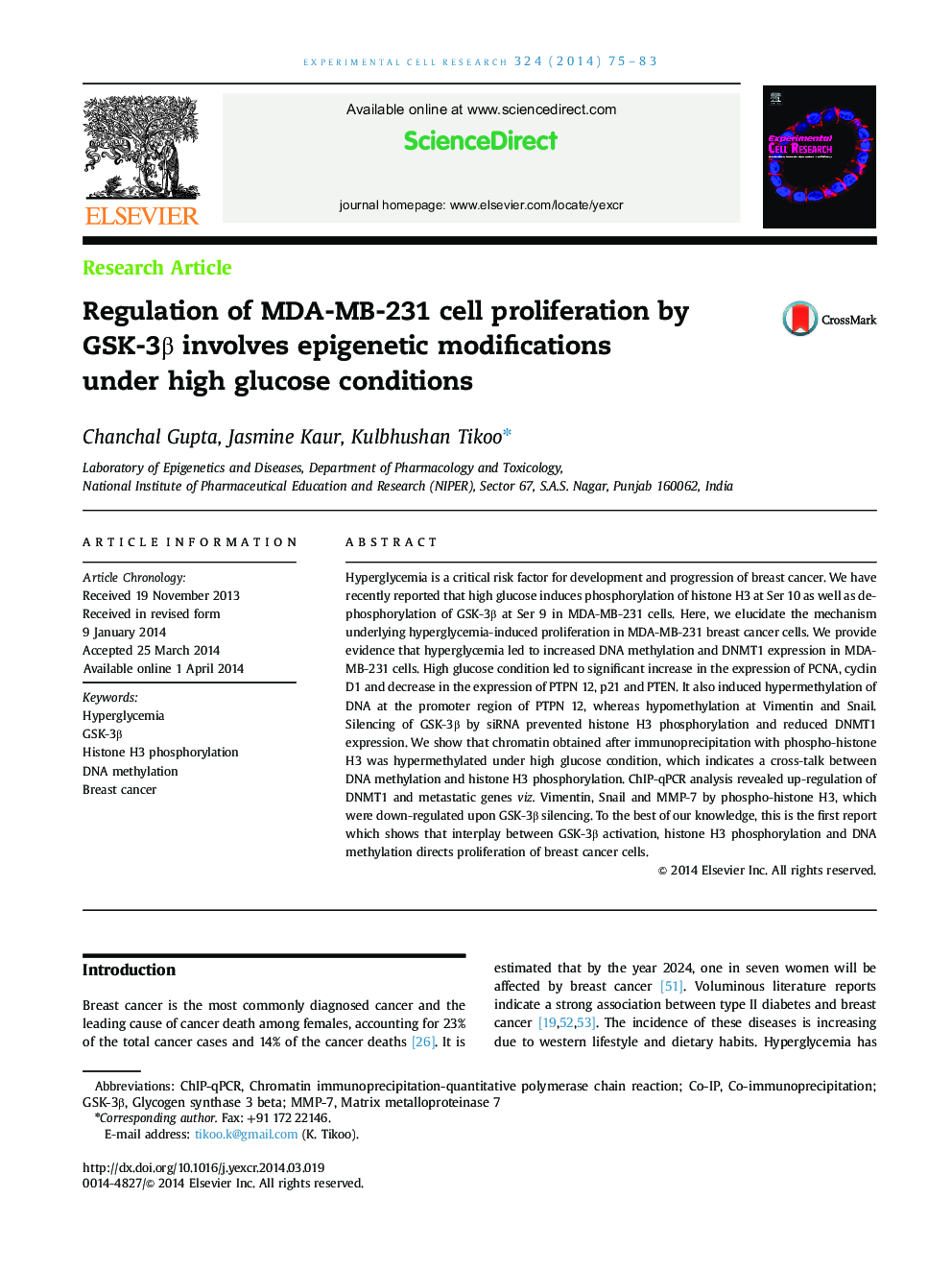| Article ID | Journal | Published Year | Pages | File Type |
|---|---|---|---|---|
| 2130325 | Experimental Cell Research | 2014 | 9 Pages |
•High glucose induces phosphorylation of histone H3 and dephosphorylation of GSK-3β.•Moreover, hyperglycemia also leads to increased DNA methylation in MDA-MB-231 cells.•Inhibition of GSK-3β prevented histone H3 phosphorylation and reduced DNMT1 levels.•Interplay exists between GSK-3β, histone H3 phosphorylation and DNA methylation.
Hyperglycemia is a critical risk factor for development and progression of breast cancer. We have recently reported that high glucose induces phosphorylation of histone H3 at Ser 10 as well as de-phosphorylation of GSK-3β at Ser 9 in MDA-MB-231 cells. Here, we elucidate the mechanism underlying hyperglycemia-induced proliferation in MDA-MB-231 breast cancer cells. We provide evidence that hyperglycemia led to increased DNA methylation and DNMT1 expression in MDA-MB-231 cells. High glucose condition led to significant increase in the expression of PCNA, cyclin D1 and decrease in the expression of PTPN 12, p21 and PTEN. It also induced hypermethylation of DNA at the promoter region of PTPN 12, whereas hypomethylation at Vimentin and Snail. Silencing of GSK-3β by siRNA prevented histone H3 phosphorylation and reduced DNMT1 expression. We show that chromatin obtained after immunoprecipitation with phospho-histone H3 was hypermethylated under high glucose condition, which indicates a cross-talk between DNA methylation and histone H3 phosphorylation. ChIP-qPCR analysis revealed up-regulation of DNMT1 and metastatic genes viz. Vimentin, Snail and MMP-7 by phospho-histone H3, which were down-regulated upon GSK-3β silencing. To the best of our knowledge, this is the first report which shows that interplay between GSK-3β activation, histone H3 phosphorylation and DNA methylation directs proliferation of breast cancer cells.
